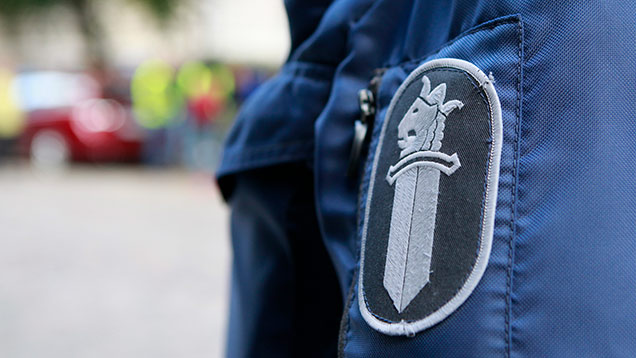Police prioritise their duties well and are successful in performing them

About 88 per cent of the respondents to the most recent Police Barometer survey considered that the police were fully or mostly able to fulfil their responsibility for ensuring public order and security in Finland. The results of the survey have been positive for quite some time now. What is also significant is that the results have even improved since 2012.
"The police have prioritised their duties well and succeeded in performing the duties that are most important to people living in Finland," says Minister of the Interior Kai Mykkänen.
The majority of Finnish people continue to have confidence in the police. According to the latest Police Barometer survey, about 95 per cent of the Finns trust the police either a lot or a fair amount. The respondents to the survey considered that the most important police duties included emergency response, prevention and investigation of violent crime, intervention in domestic violence and counter-terrorism.
"The most important capital and resource of policing is trust. It needs to be earned, and we cannot afford to lose it under any circumstances. Trust is earned daily based on how we encounter and treat our customers and how strictly we ourselves, as police officers, observe the law both on and off duty," says National Police Commissioner Seppo Kolehmainen.
The aim of the Police Barometer survey is to gauge public opinion on the Finnish Police and the internal security situation in the country. The survey has been conducted ten times between 1999 and 2018. A total of 1,096 people were interviewed for the latest survey between November 2017 and January 2018. They were residents in mainland Finland and aged between 15 and 79.
A bigger percentage of property crime is reported to the police
The crime situation is perceived as a slightly more serious problem than in the previous survey in 2016, but when considered in the long term, the trend has been positive. The most common crime types included in the survey are property theft, property damage and assault. A total of about 32 per cent of the respondents said that they had been a victim of property crime at least once in their lives. Approximately 22 per cent said that their property had sometimes been damaged and 16 per cent said that they had been a victim of an assault.
The answers show that there has been a relatively consistent reduction in the number of property crimes over a long period of time. People have, however, become more active in reporting property crimes both in the long term and especially within the last two years. The change has been most notable in the number of reported car thefts or the related attempts and in the number of reported property damage. In 2018, the reporting rate for these crime types was about ten percentage points higher than in 2016.
Police sometimes make mistakes
Approximately 95 per cent of the respondents said that they trust the police a lot or a fair amount. About 86–87 per cent of them considered that the police treat people with respect often or very often and that they make fair and objective decisions.
The police, however, sometimes make mistakes. For the first time in the history of the survey, the respondents were asked if the police had made any obvious mistakes in the performance of their daily duties, for example when imposing fines or performing assignments related to public disturbances. Almost one out of five respondents (18%) considered that the police had made obvious mistakes in their own work.
Based on the answers to the open-ended questions, the police have made mistakes regarding traffic violations, for example. The respondents had also detected that the police themselves had made traffic violations, behaved inappropriately, used too much force in certain situations and made decisions that were unfair towards the underprivileged and people with an immigrant background. In addition, the respondents often mentioned that the police do not sometimes listen, show up in cases concerning public disturbances, investigate cases or offences or that they sometimes decide, without a valid reason, not to complete an investigation.
Sexual offences are seldom reported to the police
It seems that the number of cases involving sexual harassment or violence has increased since the early 2010s, but the reporting rate is about the same or somewhat lower than back then.
Approximately 76 per cent of young women under the age of 30 feel that they have never been sexually harassed or that they have never experienced sexual violence. In 2010, the same figure was about 87 per cent. As for older women, the situation seems to be the same as in the early 2010s.
This could be explained by the fact that sexual harassment or violence has increased or that similar or almost similar incidents are now more often than before perceived as sexual harassment or violence. Both incidents and interpretations of them may have changed.
It seems that the reporting rate for sexual harassment or violence has remained the same or decreased over the past few years. On the basis of this survey, about 17 per cent of the cases involving sexual harassment or violence are reported to the police. The figure is clearly lower than the corresponding figures for other crime types.
Inquiries:
Matti Vuorensyrjä, Senior Planning Officer, tel.+358 295 483 806, [email protected]
Titta Andersson-Bohren, Special Adviser, tel. +358 295 488 502, [email protected] (requests for interview with Minister Mykkänen)
Seppo Kolehmainen, National Police Commissioner, tel. +358 295 418 900, [email protected]
